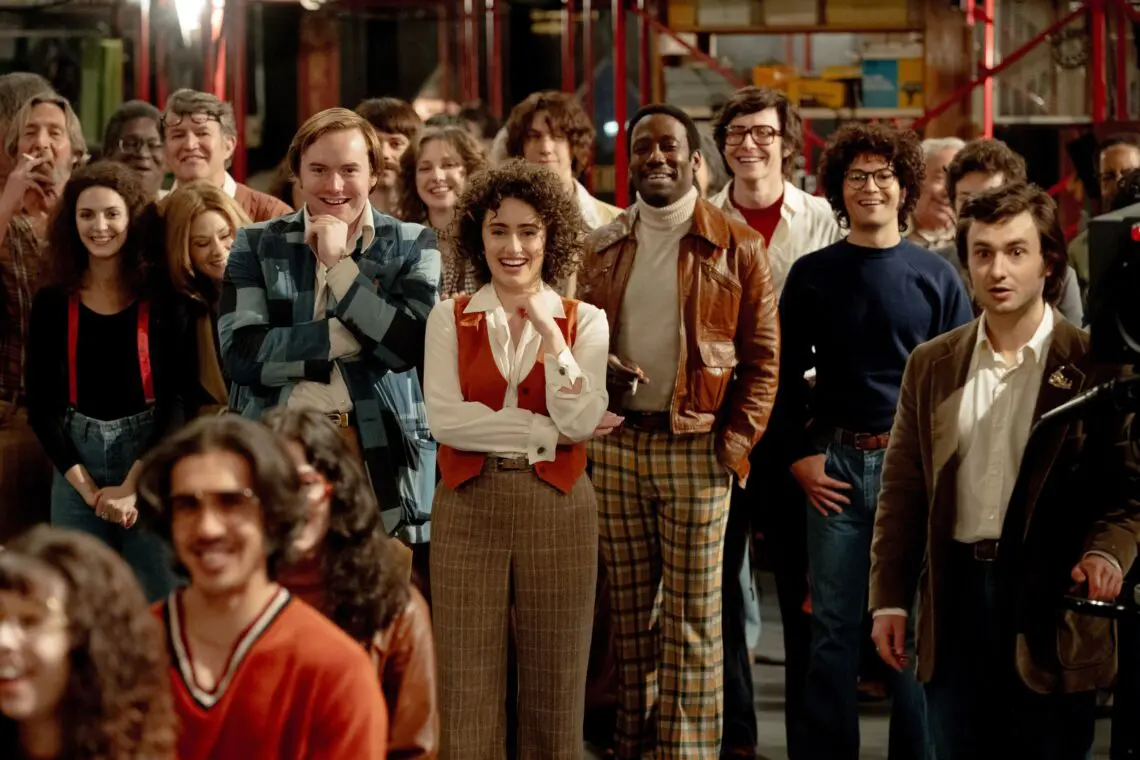Oscar hopefuls highlight the power of ensemble casts
Konstantin Stanislavski’s renowned insight, “There are no small parts, only small actors,” pairs harmoniously with Dabbs Greer’s belief that “Every character actor, in their own little sphere, is the lead.” Both luminaries would likely applaud this year’s Oscar race, showcasing the strength and importance of ensemble films. This year brings to the screen projects that emphasize the synergy of collective talent, validating the belief that every role, big or small, contributes to the film’s overall magic.
Crafting a cohesive cast for ‘Saturday Night’
Jason Reitman, the director behind the highly anticipated “Saturday Night,” embarked on a global talent quest to assemble an ensemble that could capture the eclectic chemistry of the first-ever episode of NBC’s “Saturday Night Live.” With 80 speaking roles, the challenge was ensuring each actor fit seamlessly into the world being recreated.
Reitman’s vision involved blending actors typically cast against their usual types. For instance, Cory Michael Smith, known for his role as the Riddler in “Gotham,” was cast as the flamboyant comedian Chevy Chase. Lamorne Morris, familiar to audiences from “Fargo” and “New Girl,” was chosen to portray Garrett Morris, bringing to life the unique experiences of being a person of color in a predominantly white space. Meanwhile, Nicholas Podany, though less well-known, was tasked with capturing the distinctive voice pattern of Billy Crystal.
Reitman’s meticulous selection
Reitman and co-writer Gil Kenan approached the script with a journalistic fervor, interviewing surviving members of the original “SNL” cast and crew. Despite Reitman’s personal connections in the industry, the goal was to authentically capture the energy of the era. This commitment extended to choosing Sony over NBC’s sister studio Universal, avoiding conflicts with “SNL” creator Lorne Michaels. Reitman emphasized, “We made an early decision to avoid casting anyone from ‘Saturday Night Live’ to prevent any meta or cutesy insinuations.”
Realism in ‘September 5’: Background stars take center stage
Tim Fehlbaum, director of “September 5,” focused on recreating the camaraderie of the 1970s ABC Sports crew during the Munich Olympics hostage crisis. Modern-day sports departments provided inspiration, ensuring authenticity in how characters interacted. Notably, the film used real news footage, like the anchor’s chilling announcement, to anchor it firmly in history.
Peter Sarsgaard and John Magaro played key roles, but Fehlbaum ensured they blended seamlessly with the broader cast. The director emphasized, “This is an essential story, and we wanted it to resonate as realistically as possible.”
‘Emilia Pérez’: A blend of star power and cultural authenticity
In “Emilia Pérez,” casting director Carla Hool faced the task of balancing name recognition with cultural authenticity. French director Jacques Audiard’s Spanish-language musical drama set in Mexico required adjustments, such as switching Zoe Saldaña’s character from Mexican to Dominican to fit her heritage. Additionally, Selena Gomez was cast as the cartel leader’s American spouse.
Karla Sofía Gascón, despite not being a trained singer, took up the lead role as Emilia, demonstrating the film’s commitment to authentic, but adaptable, casting choices.
Bringing reality to ‘Sing Sing’: Authenticity in every role
Director Greg Kwedar’s “Sing Sing” posed a unique challenge by blending professional actors with formerly incarcerated men. Colman Domingo was a clear choice for the role of the wrongfully imprisoned John “Divine G” Whitfield, with Paul Raci playing the acting coach Brent Buell. Kwedar emphasized the careful balance needed when casting notable actors to maintain the story’s focus.
The film’s authentic feel was achieved by casting former inmate Clarence “Divine Eye” Maclin as himself, maintaining realism. The production’s setting in a decommissioned prison brought emotional resonance for many actors, igniting a sense of catharsis and realism.
Celebrating the mastery of ensemble films
This year’s Oscar contenders underscore the powerful impact of ensemble casts. Films like “Saturday Night”, “September 5”, “Emilia Pérez”, and “Sing Sing”, remind us that every role matters. The deliberate casting decisions embody the spirit of Stanislavski and Greer, championing the importance of every actor, regardless of their place on the call sheet.
These films are a testament to the meticulous craft of casting and the undeniable power of an ensemble in telling compelling stories. Keep following for more insights into the world of cinema and its brilliant creations!

 Italian
Italian







